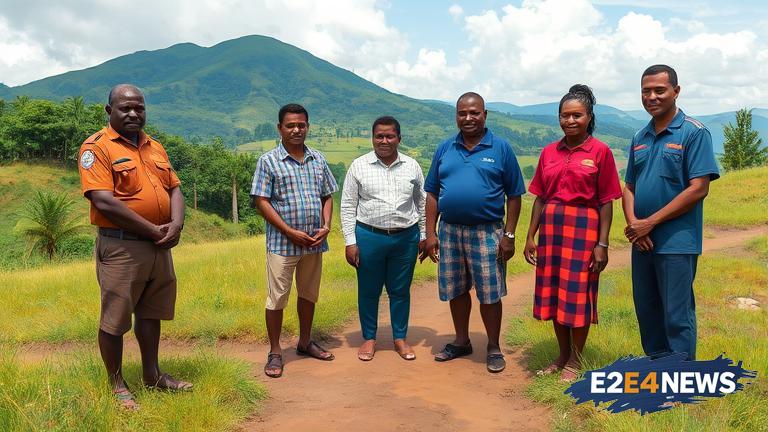The Ministry of Rural Development (MRD) in Solomon Islands has officially launched its new 3-year roadmap, a comprehensive document that outlines the ministry’s strategic plans and objectives for rural development. The launch event was attended by high-ranking government officials, development partners, and stakeholders from the rural sector. The 3-year roadmap is designed to guide the ministry’s efforts in promoting rural development, improving the livelihoods of rural communities, and enhancing the overall quality of life in rural areas. The roadmap is built around several key pillars, including rural infrastructure development, rural economic empowerment, and social services delivery. The ministry has identified several priority areas, including the development of rural roads, bridges, and wharfs, as well as the improvement of rural water supply, sanitation, and hygiene facilities. The roadmap also emphasizes the importance of promoting rural economic growth, through initiatives such as rural entrepreneurship development, agricultural productivity enhancement, and rural tourism promotion. The ministry has also committed to improving the delivery of social services, including healthcare, education, and community development programs, in rural areas. The 3-year roadmap is aligned with the Solomon Islands Government’s National Development Strategy (NDS) and the United Nations’ Sustainable Development Goals (SDGs). The ministry has also established a monitoring and evaluation framework to track progress and ensure that the roadmap’s objectives are met. The launch of the 3-year roadmap is a significant milestone for the MRD, and it is expected to have a positive impact on the lives of rural communities in Solomon Islands. The ministry has called on all stakeholders, including development partners, civil society organizations, and the private sector, to support the implementation of the roadmap. The Solomon Islands Government has also committed to providing the necessary resources and support to ensure the successful implementation of the roadmap. The 3-year roadmap is a testament to the government’s commitment to promoting rural development and improving the livelihoods of rural communities. The ministry has also recognized the importance of community participation and engagement in the implementation of the roadmap, and has established a community-based monitoring system to ensure that the needs and concerns of rural communities are taken into account. The launch of the 3-year roadmap has been welcomed by development partners, who have pledged to support the ministry in its efforts to promote rural development. The roadmap is expected to contribute to the achievement of several SDGs, including SDG 1 (No Poverty), SDG 2 (Zero Hunger), SDG 3 (Good Health and Well-being), and SDG 9 (Industry, Innovation, and Infrastructure). The ministry has also emphasized the importance of promoting gender equality and women’s empowerment in the implementation of the roadmap. The 3-year roadmap is a significant step forward for the MRD, and it is expected to have a lasting impact on the development of rural areas in Solomon Islands. The ministry has called on all stakeholders to work together to ensure the successful implementation of the roadmap, and to promote the development of rural areas in Solomon Islands. The launch of the 3-year roadmap is a major achievement for the Solomon Islands Government, and it demonstrates the government’s commitment to promoting rural development and improving the livelihoods of rural communities. The roadmap is expected to contribute to the achievement of the government’s development goals, and to promote sustainable development in rural areas. The ministry has also recognized the importance of promoting environmental sustainability in the implementation of the roadmap, and has established a framework for environmental monitoring and management. The 3-year roadmap is a comprehensive document that outlines the ministry’s strategic plans and objectives for rural development, and it is expected to have a positive impact on the lives of rural communities in Solomon Islands.





